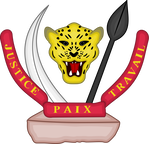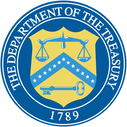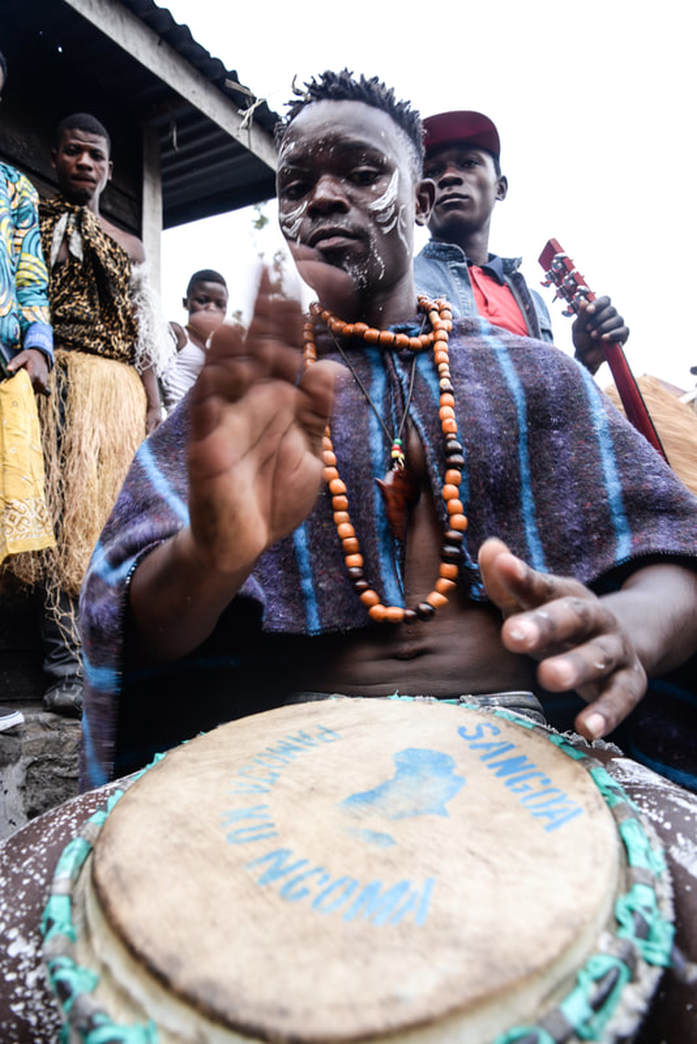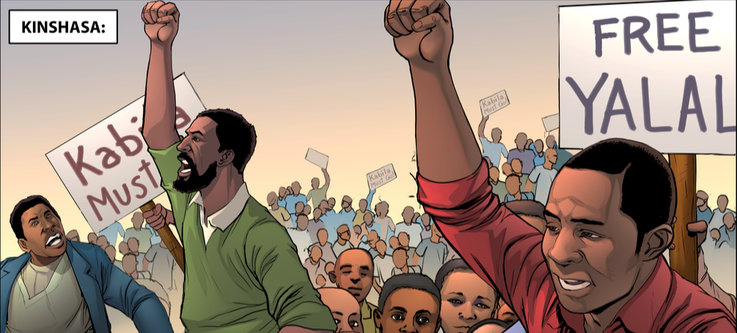"The United States stands with the people of Congo at this historic moment and it is they who should determine their country’s future." -U.S. State Dpt.
The following collective of U.S. actions represents historic Western-Congo Policy toward durable peace, progress, and prosperity in DRC. In solidarity, this includes DRC's first peaceful transition of power since Congolese won their Independence from Belgian rule in 1960.
In October 2017, the U.S. Senate sent a letter to U.S. President Donald J. Trump urging him to address the political and humanitarian crises in DRC. In December 2017 the White House responded, declaring Human Rights Abuse across the globe a National Emergency. Directing the U.S. Treasury and DOJ to hunt down and bring to Justice Human Rights Abusers in DRC and around the world.
Twenty-one predatory multinationals operating in DRC, including Glencore and Dan Gertler, pierced by teethed sanctions, financial seizures, and follow on investigations.
The following are chronological actions the U.S. has taken in solidarity with the sovereignty, peace, and liberty of Congolese.
Note: U.S.-Democratic Republic of the Congo Relations Fact Sheet.
U.S. Department of State Calls the U.N. to Action
The United States calls for the United Nations to investigate the deaths of UN employees and human rights violations in the Democratic Republic of the Congo.
U.S. Executive Order 13413
Notice Regarding the Continuation of the National Emergency with Respect to the Democratic Republic of the Congo
U.S. Global Human Rights Sanctions, Dan Girtler and 20 DRC Multinationals
United States Sanctions Human Rights Abusers and Corrupt Actors Across the Globe
U.S. Humanitarian Aid, Largest Single Donor
The United States announces additional emergency assistance for DRC
U.S. Congressional Letter to Dictator Kabila
U.S. Senators Urge DRC Dictator Joseph Kabila to Hold Free and Fair Elections on Schedule
U.S. House Bill 6207 (in Senate)
H.R. 6207: Democratic Republic of the Congo Democracy and Accountability Act of 2018
U.S. Investigation into apex DRC predator, Glencore, Plc
U.S. Department of Justice launches corruption and money-laundering probe into Glencore Plc
U.S. Treasury Amendments to DRC Sanctions Regulations
Strengthening of Sanctions and Regulations targeting peace, Human Rights, and DRC elections
U.S. Calls Upon the Democratic Republic of the Congo's Electoral Commission To Release Accurate Results
The United States stands by the millions of Congolese voters who went to the polls across the Democratic Republic of the Congo (DRC) on December 30.
U.S. President's letter to the President pro tempore of the Senate and Speaker of the House of Representatives
United States Armed Forces personnel have deployed to Libreville, Gabon, and Kinshasa, Democratic Republic of the Congo.
U.S. Engel Statement on DRC Elections
The Congolese government must restore Internet, text-message, and social media connections that have been cut in major urban centers, and allow its citizens the opportunity to express themselves peacefully.
U.S. Statement on Provisional Election Results in the Democratic Republic of the Congo
The United States stands with the people of Congo at this historic moment and it is they who should determine their country’s future. Violence is unacceptable, and the U.S. Government will hold accountable those who perpetrate election-related violence or impede the democratic process.
U.S. to provide $10 million to strengthen anti-corruption and anti-crime institutions
A police force that conducts itself professionally is critical to ensuring the security of its people and safeguarding its natural resources so that they can benefit its citizens. Citizens have a right to demonstrate and express themselves peacefully, and without fear of repression.
U.S. to provide up to $600 million over 3 years in development assistance to advance key DRC sectors
This extended development assistance agreement will allow USAID to help millions of Congolese by providing school supplies to children, delivering vital medicines to the sick, protecting the DRC’s forests and wildlife, and more. Most importantly, our programs will help the DRC advance in its journey to self-reliance.








 RSS Feed
RSS Feed
